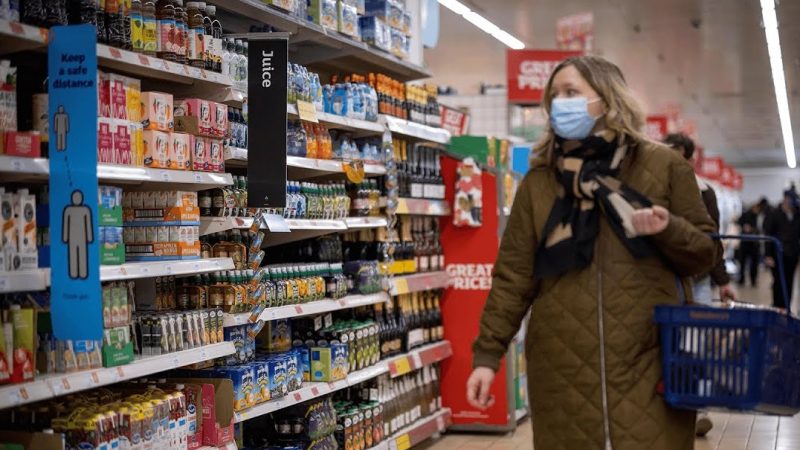Real household disposable income growth for working-age families averaged just 0.7 per cent a year in the 15 years leading up to the Covid-19 pandemic.

As inflation hits 9% and with low income growth in the UK since 2005, the cost of living crisis has meant that the UK’s poorest households have been left ‘brutally exposed’, the Resolution Foundation has warned.
The think tank found that real household disposable income growth for working-age families averaged just 0.7 per cent a year in the 15 years leading up to the Covid-19 pandemic.
That has meant that some of the most vulnerable families in the country have been left totally unprepared for the fastest price rises for decades. The hardest hit groups are families in rental accommodation, single parents and those with young children, whose incomes on the eve of the pandemic were all significantly lower than the recorded median.
The report also highlights that across European countries, only households in Greece and Cyprus saw a worse performance between 2007 and 2018 than the UK.
It also found that the ‘ten most unequal years on record have all happened since the turn of the century, and five of them were between 2013-14 and 2019-20.’
Over one-in-four households in the UK have less than a month’s worth of savings and therefore very little financial buffer against rising cost pressures.
The Resolution Foundation said in a statement: “Too many families today have to cope with low disposable incomes, little or no private savings (over one-in-four have less than a month’s worth of financial buffer), and a weak social safety net to fall back on (basic unemployment support is now down to just 13 per cent of average pay, its lowest level on record).
“The report shows just how stark Britain’s living standards slump has been. Between 1961 and 2004-05, typical household incomes for non-pensioners grew by 2.3 per cent per year, on average, or 25 per cent per decade. Between 2004-05 and 2019-20 however, typical income growth slowed to just 0.7 per cent per year.
“Even more starkly, the typical incomes of the poorest fifth of the population were no higher on the eve of the pandemic than they were back in 2004-05, despite GDP per person growing by 12 per cent over this period.”
Adam Corlett, Principal Economist at the Resolution Foundation, said: “Households across Britain – and across many other countries – are currently grappling with high levels of inflation that we haven’t seen for generations.
“But while many of the causes of the current crisis are global in nature, it is Britain’s recent history of low income growth and high inequality that has left so many households really struggling to cope.
“Britain’s poor recent record on living standards – notably the complete collapse of income growth for poor households over the past 20 years – must be turned around in the decade ahead.
“To do that, we must address our failure to raise pay and productivity levels, strengthen our social safety net, reduce housing costs and build on what we’ve done well – such as boosting employment for lower-income households.”
Basit Mahmood is editor of Left Foot Forward
Left Foot Forward doesn't have the backing of big business or billionaires. We rely on the kind and generous support of ordinary people like you.
You can support hard-hitting journalism that holds the right to account, provides a forum for debate among progressives, and covers the stories the rest of the media ignore. Donate today.



